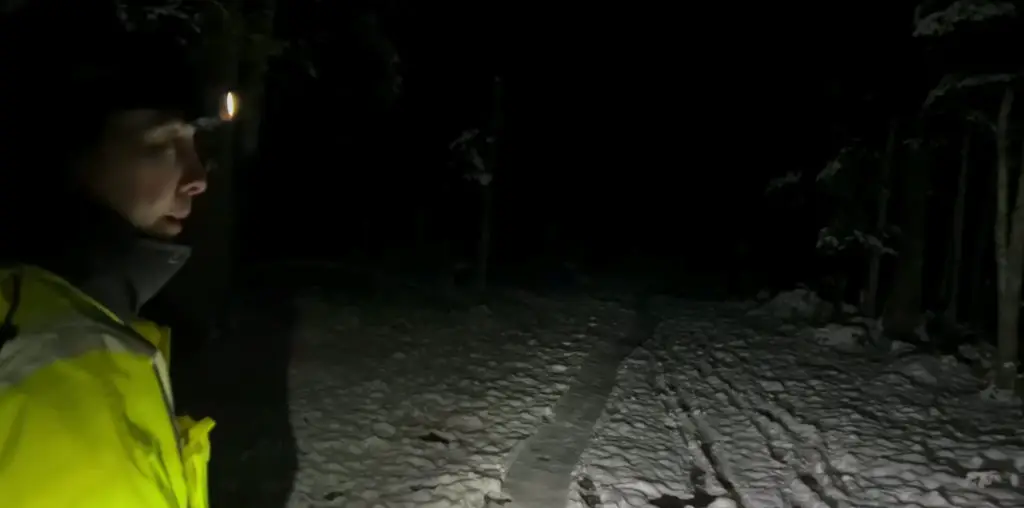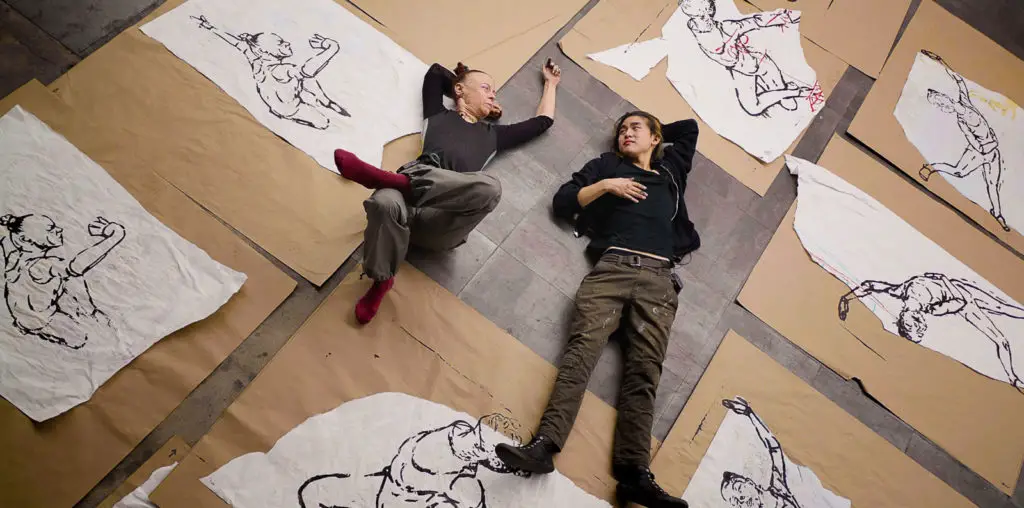
When it comes to short films, Bogdan Darev’s adaptation of the Hans Christian Andersen tale The Angel is about as close to perfect as you can get. In the course of 13 minutes, “The Angel” runs the emotional gamut from sorrow to soaring and leaves its audience breathless with its skill and artistry. Rarely has a short film in recent years offered such an immediate artistic triumph.
“The Angel” operates under the premise that an angel comes down from Heaven whenever a child passes away. Before returning to Heaven, the angel takes the child through one final trip to the places which gave the child pleasure during the brief span of life prior to death. This final sojourn also includes the plucking of a single flower to bring back to Heaven, where God will see it bloom in eternity.
In this film, an angel escorting a youth on his final Earth-bound journey pauses to relate a tale from a dark and dismal street where a wilted flower lies amid the rubble of a shattered flowerpot. The flower and its container once belonged to a sickly boy who was unable to leave the bedroom of his family’s apartment. His days were spent either in bed with an unspecified disease or staring out his window to the world he could not enjoy. A single friend would bring him gifts from a nearby forest, and one particular plant (given a place of honor on a windowsill) brought so much color and fragrance to his tragic world that it briefly erased the physical and emotional pain of his life. But the boy’s health eventually gave away, and with his passing the beautiful flower also withered and literally fell away from the windowsill to its death in the street.
The significance of this sad story within the film leads to an ending which is so amazing that it would be a grave sin to give it away here. Filmmaker Darev’s subtle adaptation of the Andersen tale (with an ending that would rival the best of Rod Serling) is matched with a stunning visual style. Working with cinematographer Adam Berman, Darev’s camera placement and blocking is rich and mature, offering an intelligent artist’s eye view of scenes which are lit and framed with intelligence. From the dark world of the doomed child’s bedroom to the unexpected flush of white light in a brief dream sequence involving the boy and his prized flower to the sublime revelation at the film’s conclusion on a pristine beach at sunset, the film offers some of the most handsome and challenging cinematography currently on screen.
It would be too easy, in the hands of a lesser filmmaker, to have “The Angel” drown in moist sentimentality. Instead, Darev simultaneously calms and jolts the heart with careful images of hope and pain; he never tugs at it with cheap emotion, and his handling of child actors (especially Scooter Parsons as the dying boy) is uncommonly fine given the gravity of the subject matter. His casting of William Hardyman as the angel is also a small coup, both in the hope-laced voice of his buoyant narration to his robust physical presence where a spread of his arms can make anyone feel they are ready to fly on angel’s wings.
“The Angel” is now making its way around the festival circuit. With luck, it will be seen by industry movers and shakers with serious clout and Bogdan Darev can quickly find his way to the A-list success he is richly deserving.

